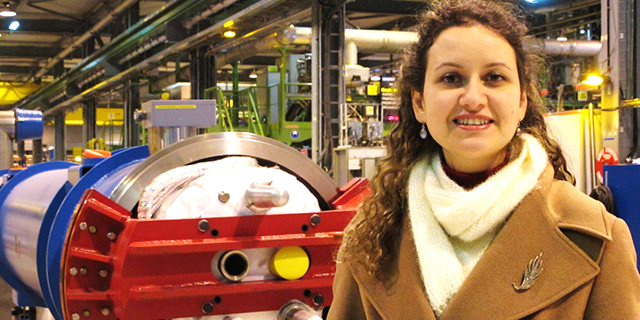TÜBA Association Member Associate Professor Dr. M. Bilge Demirköz has been appointed to CERN User’s Advisory Committee
TÜBA Association Member Associate Professor Dr. M. Bilge Demirköz, on the date of 4 February representing Middle Eastern States and users appointed to CERN User’s Advisory Committee (Advisory Committee of CERN Users-ACCU).
CERN User’s Advisory Committee making assembly four times a year provides consultancy to CERN’s General Director for practical commitments with the intention of more practical ongoing of research activities and in terms of internal managerial regulations.
Currently, at Middle East Technical University Faculty of Science and Literature Faculty Physics Department Research Member and member of TÜBİTAK Science Committee member Associate Professor Bilge Demirköz with full scholarship completed MIT (Massachusetts Institute of Technology) Physics division in USA with mathematics and music auxiliary branch. By MIT Physic Division due to contributions to Physics world apprized with “Orloff Service Award”. Completed her doctorate degree in Oxford University by Dorothy Hodking scholarship. In May 2011 by the virtue of contributions to Physics and scientific communication by TED (Technology Entertainment Design) TED Fellow, by WEF (World Economic Forum) İstanbul Center appointed as Global Shapers, in 2012 by JCI Turkey received Ten Young Outstanding Persons (TOYP), in 2013 at 8 March World Woman’s Day appraised by Family and Social Policies Ministry. Demirköz apart from the mentioned parties appraised to praises by national and international praises.
European Organization for Nuclear Research-CERN located over Switzerland and France borderline and near Geneva city CERN constitutes the world’s biggest particulate physics research laboratory. Its foundation goal in CERN as to carry out commonly the researches that are remained out of the budget opportunities of member states, from 103 nations approximately 9000 researchers (half of the global particulate physics scientists) realize research studies.

